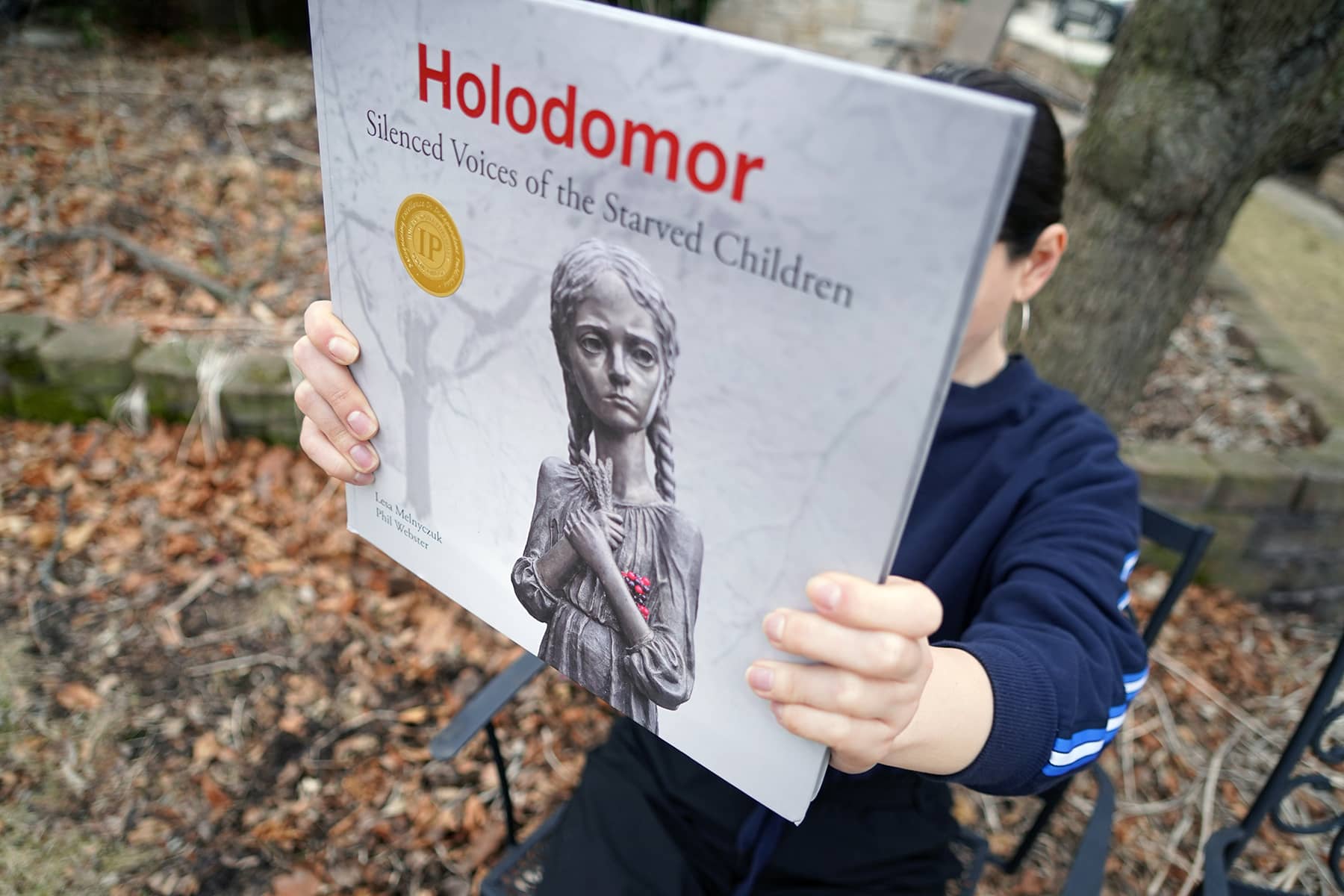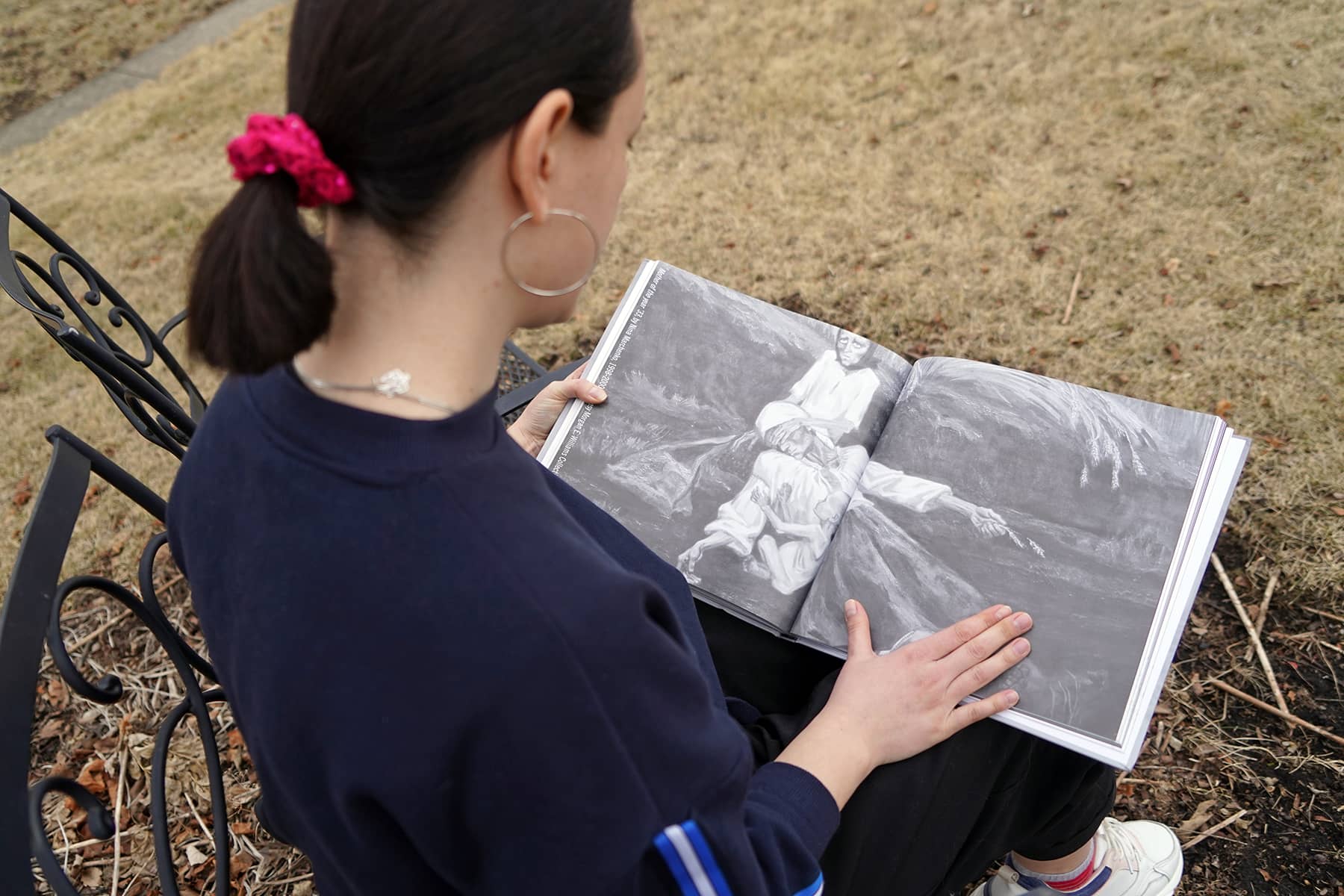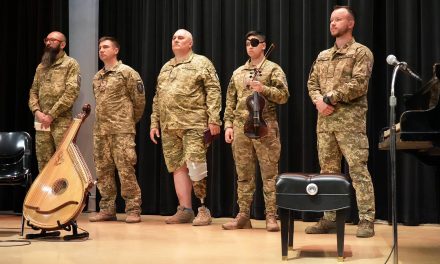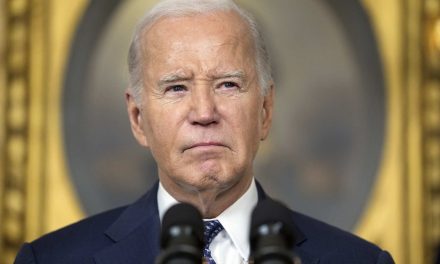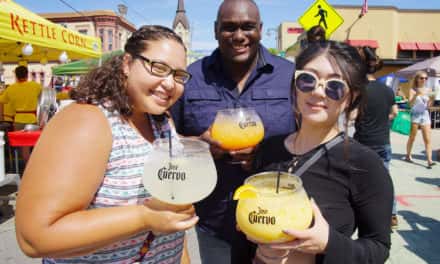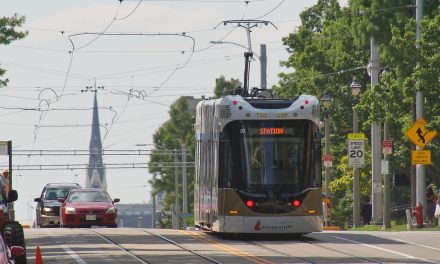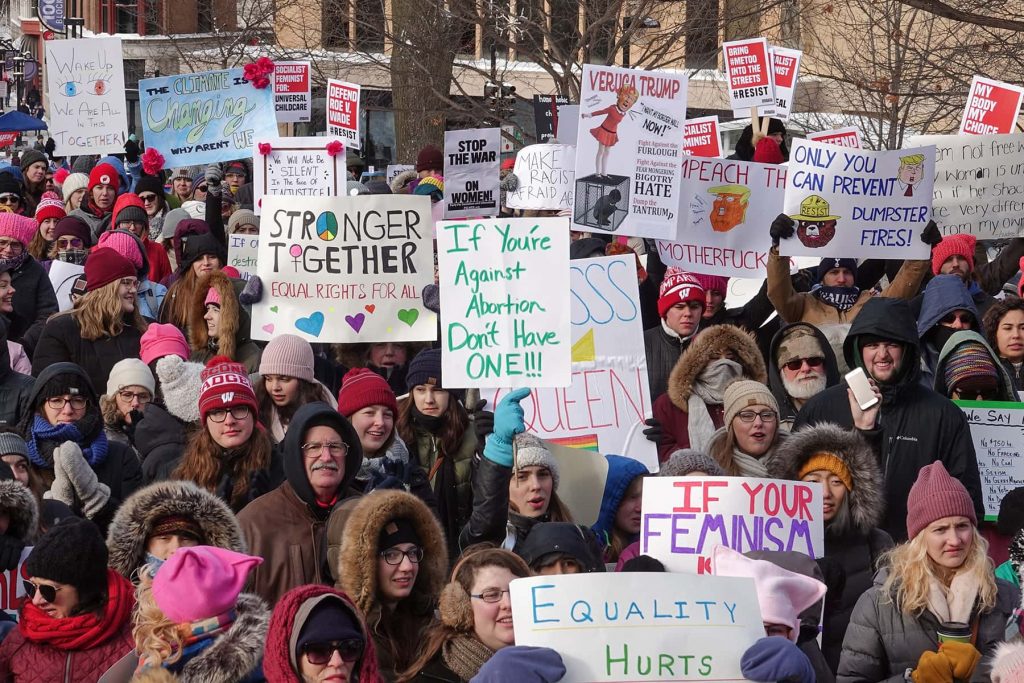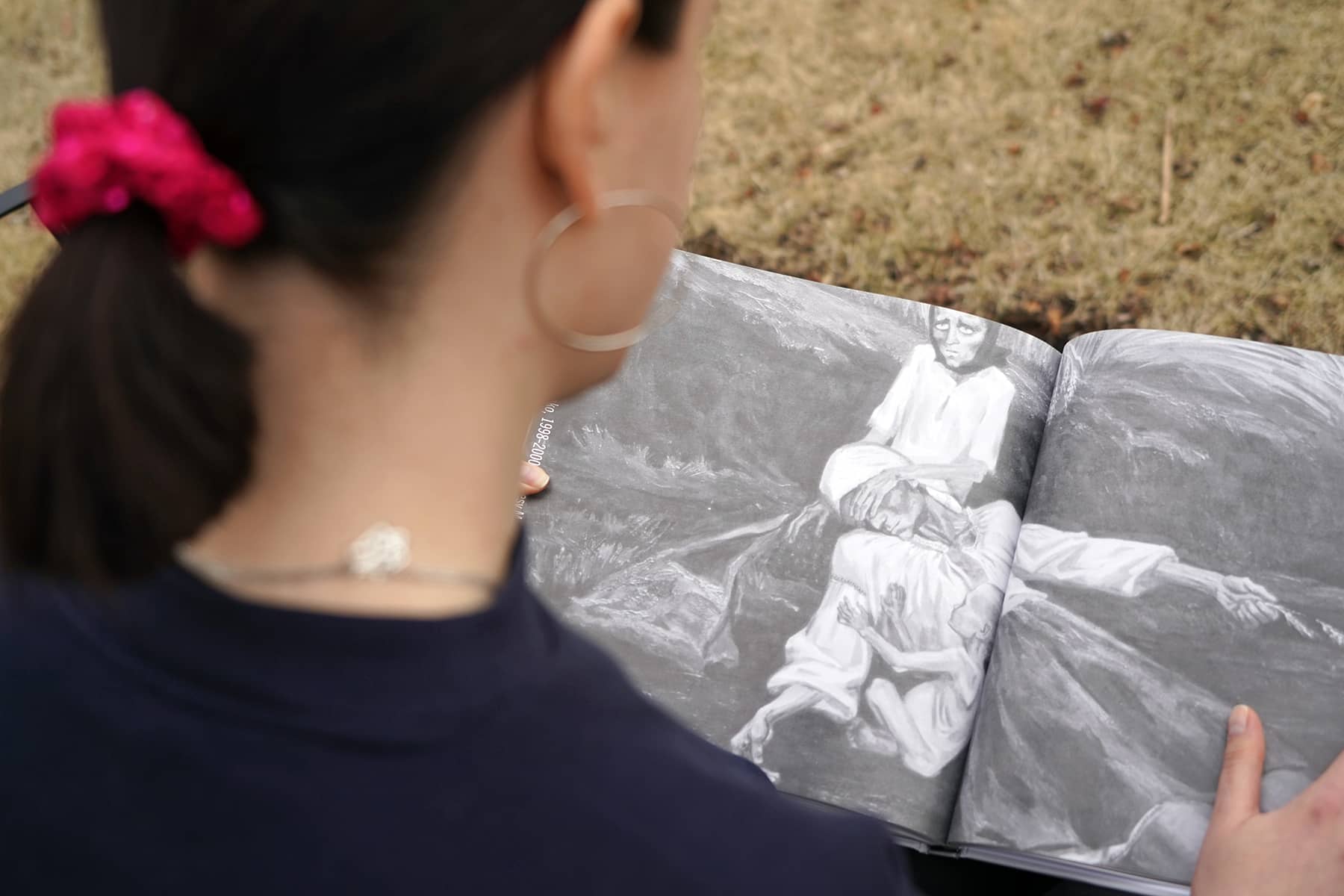
In the early days of Putin’s brutal invasion of Ukraine, I spoke with many members of Milwaukee’s Ukrainian American community. I learned about their personal connections to the war, so that their voices could be shared with the public. During one of the conversations, a relative living in Ukraine joined the discussion via video chat. That was my introduction to Anastasiya and her courage.
Unable to fight against a smaller and less formidable military, Putin’s forces have indiscriminately targeted the civilian population of Ukraine. Russian artillery has rained down on apartment buildings. The broken bodies of families with their children have been left in the ruins.
When I originally listened to Anastasiya’s first-hand account of the war in early March, I was impressed by her determination to stay in spite of the extreme danger. The survival of Ukraine was at stake, and she refused to leave her homeland. I admired her resolve, a trait that I have not see enough of from Americans.
“I am very fortunate with my situation. So many people have lost their homes. They have no where to go to be safe. The war has not destroyed my city yet, but I see other places every day on TV. I see how people are trying to escape from the South, from the East, everywhere there are mothers just trying to find a place to take their children to be safe.”
But the war continued to move closer to her home, and the risk of just going outside increased dramatically. Russian mercenaries had infiltrated the area to commit acts of sabotage. The sound of constant warning sirens in Anastasiya’s city added more stress to an already traumatized population.
“These little children know what the sirens mean, when to take cover and when it is all clear. It is really unfair for them to grow up in this constant condition of fear.”
As Putin’s campaign of terror moved closer to Anastasiya’s hometown, more of the residents fled. A once vibrant metropolis began to resemble a ghost town in only two weeks, and her family feared for her safety.
Unwilling to leave her nation and those who she loved, Anastasiya made an agonizing decision. Her safety would give her parents peace of mind, even at the cost of their separation. So when a small window opened for Anastasiya to leave Ukraine, she came to stay with relatives who lived in Milwaukee.
When I learned that Anastasiya had arrived in Milwaukee, I was also relieved to know she was safe. But I understood her sacrifice to come here. I met with her on March 17 to hear how she was doing. For a time during our talk, Anastasiya smiled and displayed high spirits. But her departure from Ukraine had taken a toll.
“I felt only pain, because I completely did not want to leave. I just felt so bad. I have heard the same feelings from other people too. The country is our soul, how can we leave? Ukraine is our future, we cannot let anyone use war to destroy our future. People tell me I should feel happy to be safe in America now. Maybe I will, but I just feel too much grief and heartache. And guilt, since I am safe when others are not.”
War had separated the siblings of her family in the 1940s. When the Iron Curtain finally fell decades later, with the collapse of the Soviet Union, brother and sister were finally reunited in an independent Ukraine. That bond continued across continents and generations with the present-day grandchildren.
Anastasiya had previously visited the United States a few years ago. She enjoyed the experience, and returned home to tell eager friends what America was like. Ukrainians knew about American culture mostly through movies, and aspired to American values of democracy and economic opportunity.
“America has a lot of possibilities. Even if you don’t have money, you can push yourself higher by working hard to have something. I really value that, to earn rewards for your effort. Our system is more inflexible and people are stuck. It can be very hard to advance, and that is why things can become corrupt.”
Over the past decade, Anastasiya grew up watching Ukraine transition away from the archaic legacy of the backwards Soviet economic model. Regular people had the chance to finally travel to other countries, and they were exposed to new lifestyles and ways of economic thinking.
“One of the biggest social differences I noticed was that as a poorer country, Ukraine people were more relaxed. We were able to enjoy life with very little. No money? No problem. But America was far more expensive. People had so many pressures, and limited time, which meant they had to schedule everything.”
She told me about her love of Ukraine and its culture, which had very deep spiritual ties to their faith. Ukrainian Christmas Eve, known as Sviat Vechir, is also an important ancient tradition. The whole family gathers at one table to enjoy 12 festive dishes that have been specially prepared.
“My parents and my grandparents, we hold onto so many Ukrainian traditions. We don’t always remember where some of them came from, but they have always been a part of our life. Our traditions inspire me, they are how I know my identity.”
Anastasiya also talked about the joy of her childhood, growing up listening to the family stories that had been passed down.
“My grandfather would tell us that when he was a kid, there were not enough boots in the family for all of his siblings. So you had to wake up early to be sure to get a pair. Otherwise, you went barefoot. I thought it was funny, but the lesson that we learned was not to complain and appreciate what we had.”
When Putin’s invasion started, Anastasiya was asleep. Her cousin in Milwaukee called because of the time difference and woke her with the terrible news.
“It was almost six o’clock, so I got the call just before I would normally wake and go to the office. When I turned on the TV, I didn’t see anything serious. So, I didn’t understand the scope of what was happening. But by the time I got to the office, we were starting to figure out what Putin was doing to our country. At my office, none of us could work. We were in shock. For the first 24 hours, there was just panic. I saw it in the long lines at the the pharmacy, the bank, and the supermarket, people tried to get all the things they needed. Long lines for everything because of the panic. That was how we survived in those early days. We had no routine, no ability to sleep. Just constant uncertainty, constant sirens. We felt helpless, we could only watch TV, watch our country set on fire. But we also watched our country fight back and refuse to give up. It was impossible to focus on regular things.”
To understand the condition of Ukrainian people, to understand how they feel, Anastasiya said that Americans had to hear the warning siren. Even here in America, her mobile device still sends urgent alerts related to her home address.
“They have to hear the siren. They have to hear it all the time. When they hear it they will understand what we feel. The siren helps keeps us safe, but it is not a regular life. There is nothing normal anymore. I understand why Americans don’t understand our problem. People here are suffering because prices now are really high. But they don’t have to worry in the same way as Ukrainians. And while the news of our situation gets attention with headlines now, it will soon fade away. But the problem does not go away for us. We have to keep living with it.”
Anastasiya shared the uncertainties she faced as she traveled to Ukraine’s border for her long journey to Milwaukee. She described the enormous lines of refugees, mothers and their children, who stood waiting for countless hours to cross. Even though Anastasiya is here in Milwaukee, her heart and thoughts remain in her hometown, in Ukraine.
“I am still there. I read the Russian news to see what kind of lies they are saying. The comments people write show how blind and deaf they are to the misery we face. So I try to stay busy. I chat with family still in Ukraine, but it is really hard because none of us have any control over what’s happening. Our home is near a military target, so before I wondered about my safety while I was in Ukraine. Now I worry about if my parents are safe. I know I’m here, but I’m still there. I’m still there.”
Because Russian troops continue to commit what has been universally described as war crimes in Ukraine, Anastasiya’s safety remains at risk even in Milwaukee. And while she has the freedom to express herself here, what she says can have dire repercussions for her besieged family. Putin has targeted thousands of dissidents within Russia who oppose the war, and countless Ukrainians have faced fatal retributions for defending their nation against his tyranny.
Anastasiya’s real name and any details that could be used to socially engineer her identity have been withheld in order to safely share her story.
© Photo
Lee Matz

